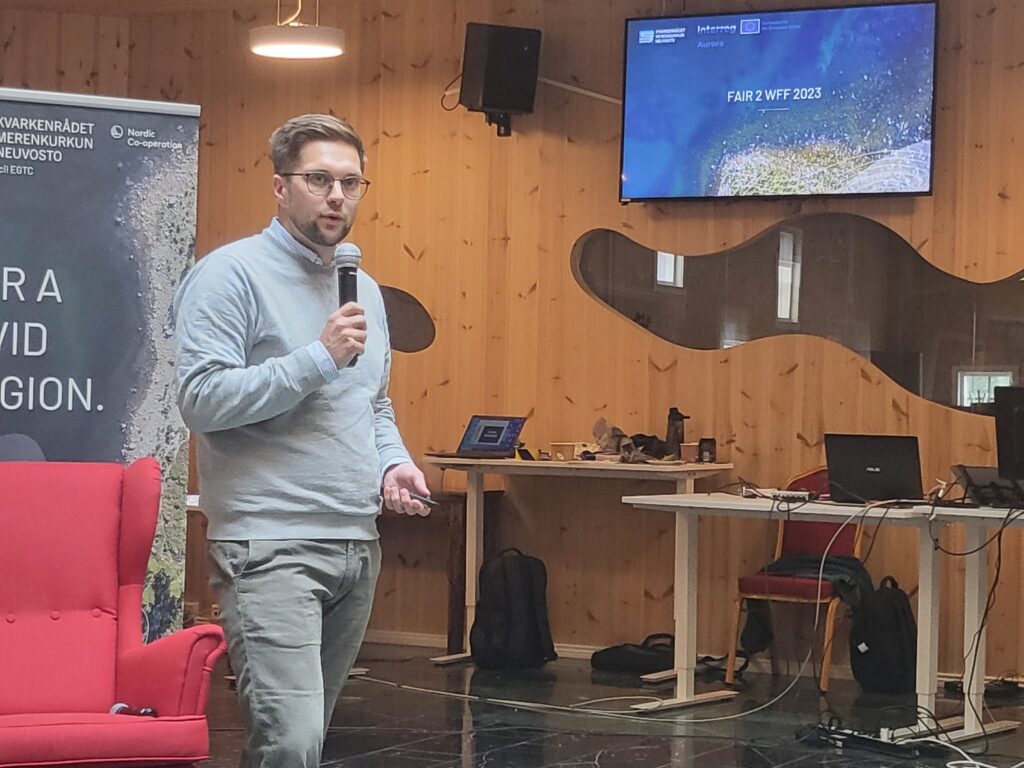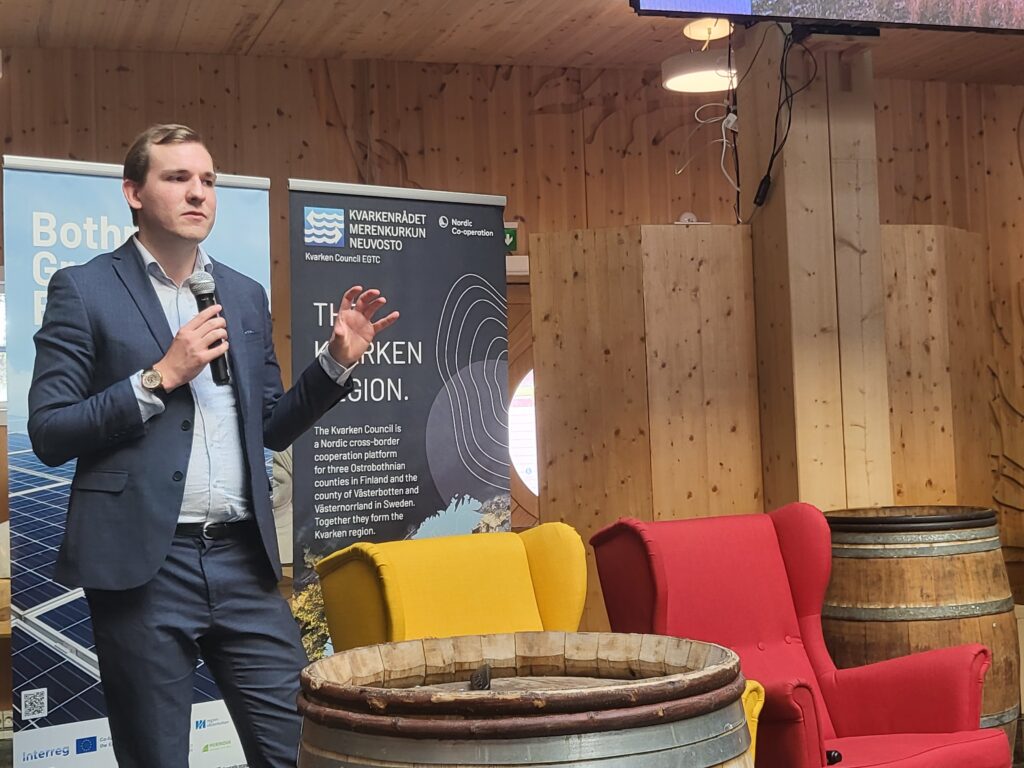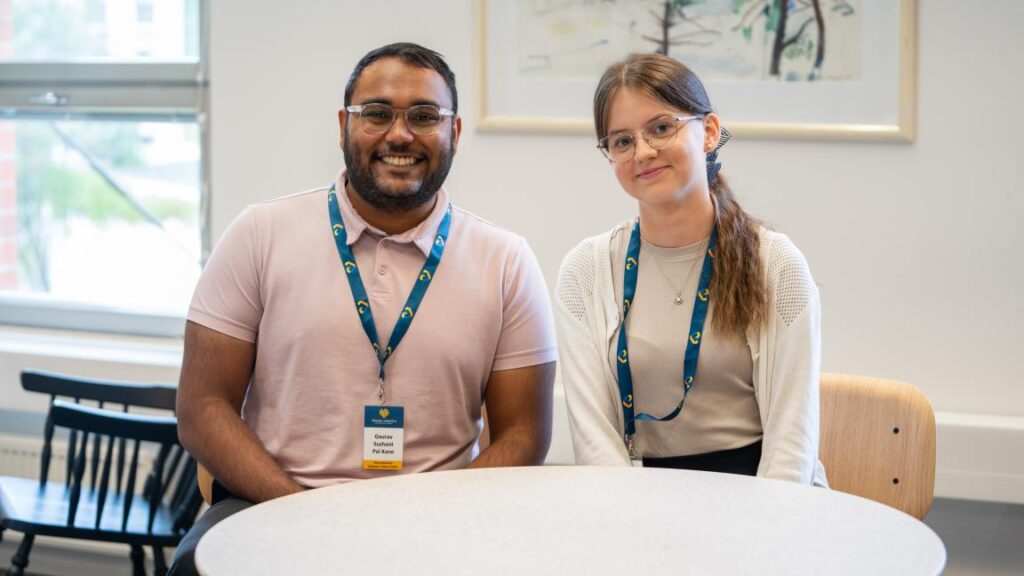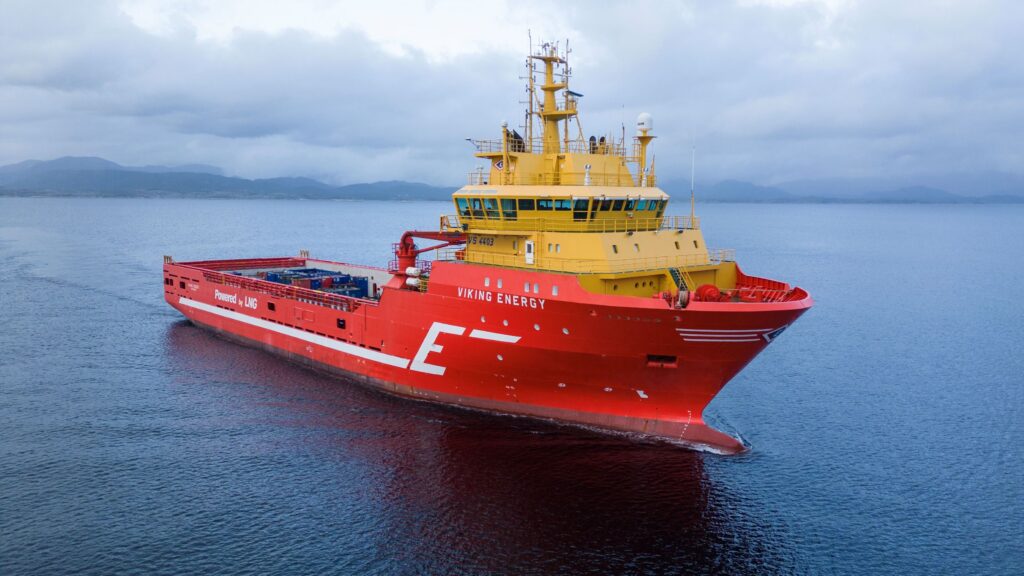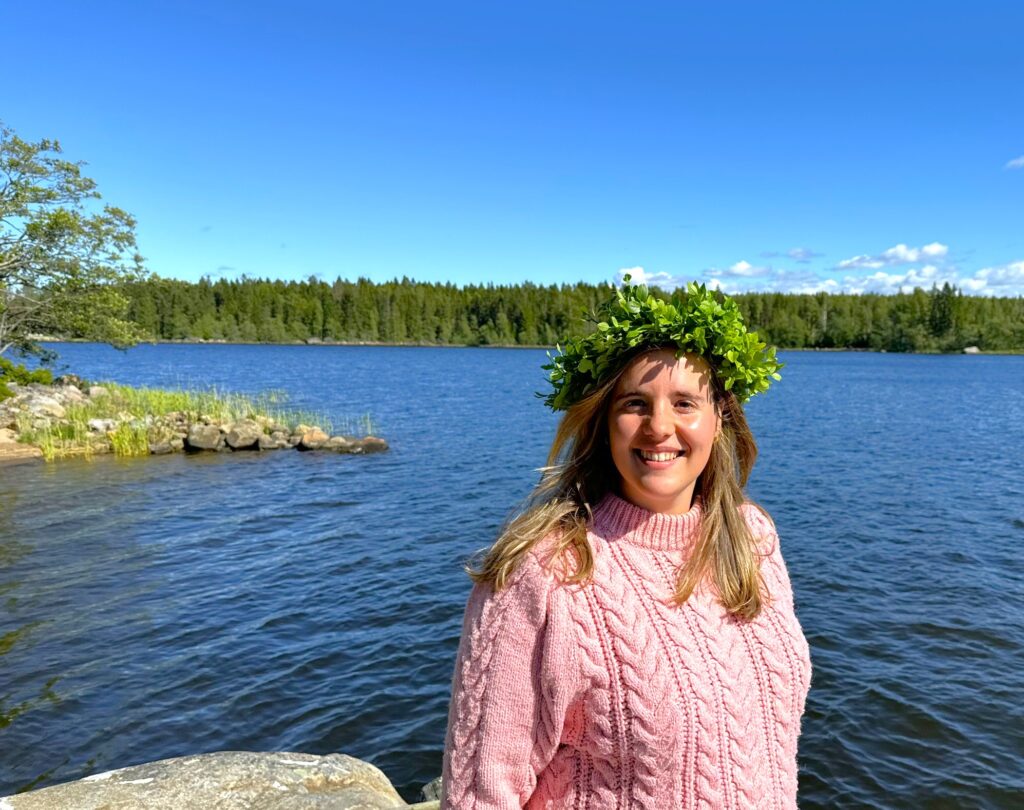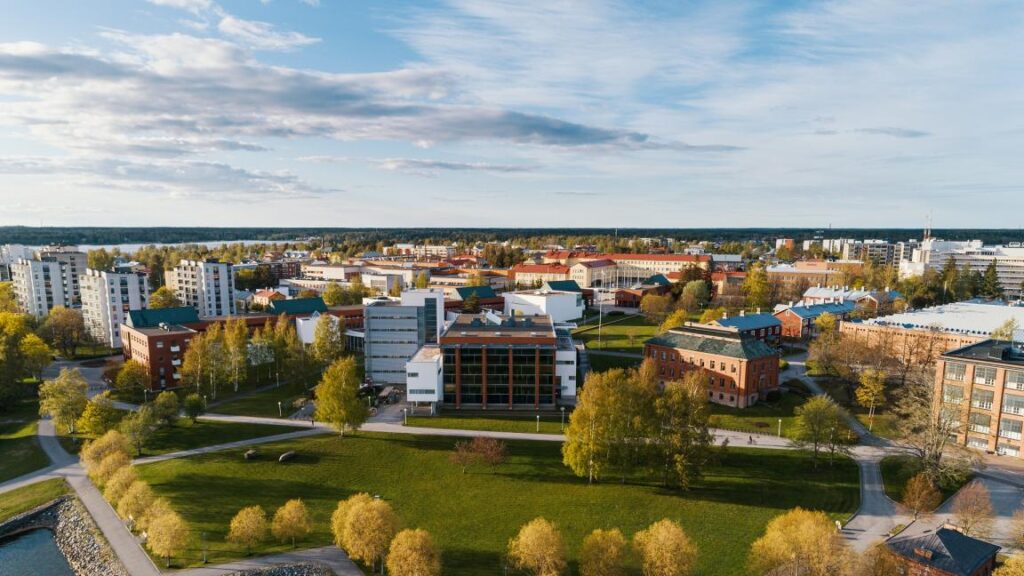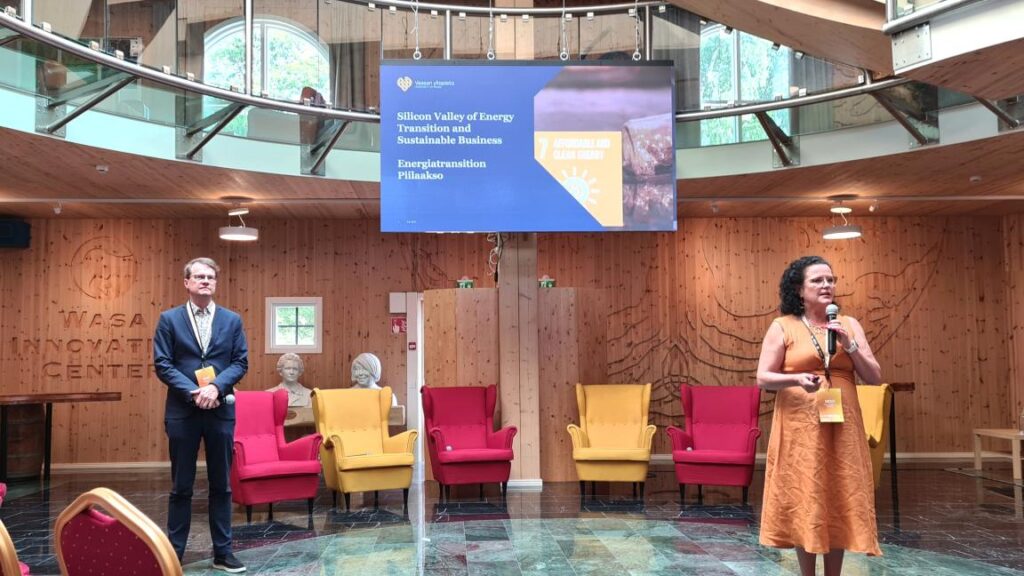The Kvarken region needs to continue developing its own models for cooperation. “Copying Silicon Valley’s concept of success does not work when driving the green transition forward,” says researcher Viktor Salenius.
Researcher Viktor Salenius, the main speaker at the Kvarken Council’s event at Wasa Future Festival last Friday, asks why cooperation is needed to succeed in the green transition. The researcher wonders why the tried and tested models from industry would not work.
The answer is probably because the reality looks like a mess. It is even difficult to judge what is disruptive and who and what is leading the development.
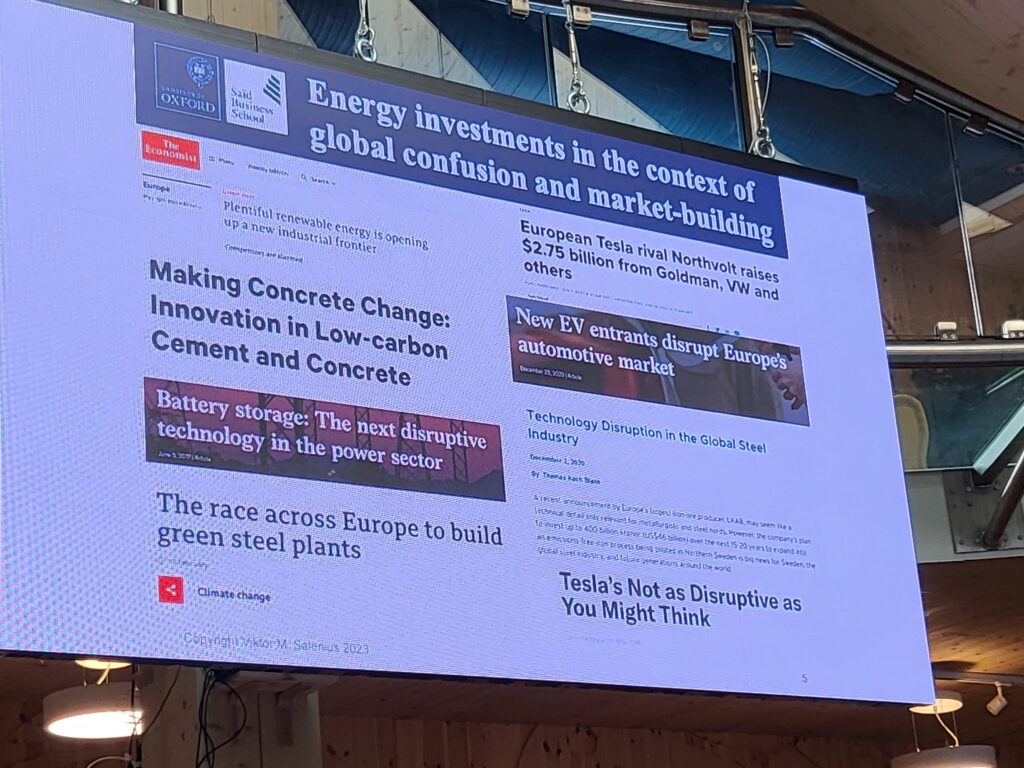
Forget linear development
Viktor Salenius says that we often work with models and beliefs that transition is a linear process, which is not necessarily true. Silicon Valley software companies may talk about exponential development, but their models don’t work for the green transition.
Viktor Salenius argues that Silicon Valley thinking assumes that larger companies buy smaller ones and that a better technology replaces an inferior one.
“We need a different model than the Silicon Valley model, which is outdated and not built to drive the green transition,” says Mr Salenius.
Viktor Salenius takes electric cars as an example and shows statistics from 2021. The statistics show that Tesla played in their own league, controlling as much market share as several of the other major manufacturers combined.
“According to the old logic, the prediction would then be that Tesla will manufacture almost all electric cars in the future, but who thinks that this will be the case?” he asks rhetorically.
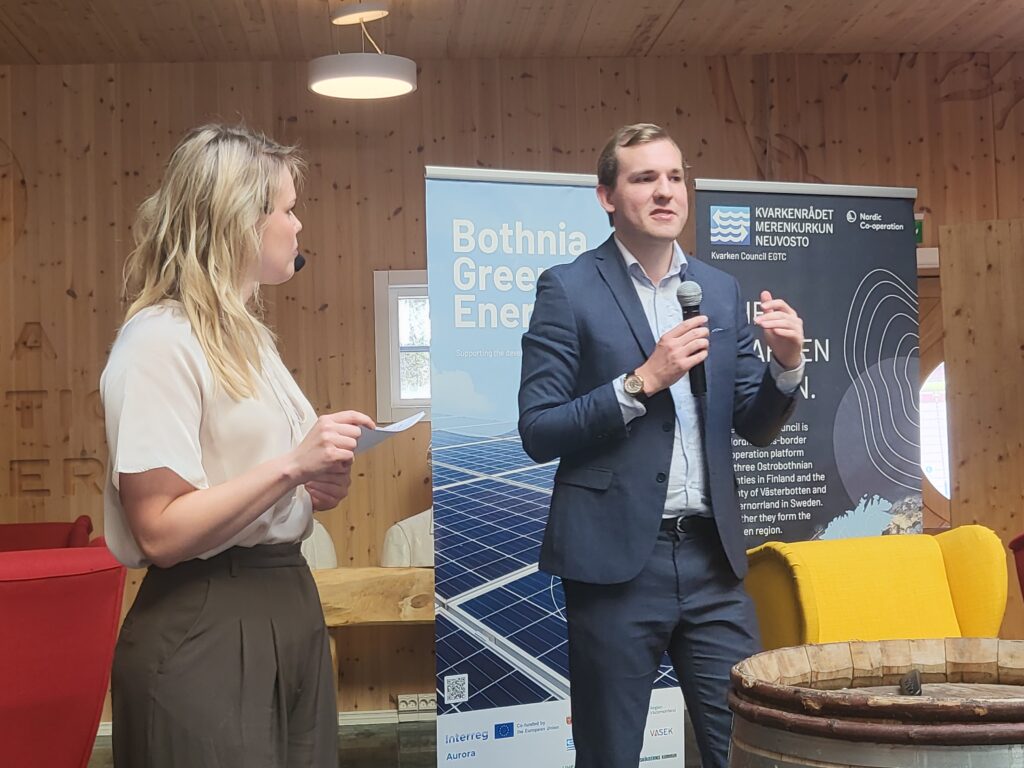
New models are needed
In the last ten years alone, many new players have emerged and new business models have been created in the Nordic region. Researcher Salenius even talks about a strange but working dynamic where companies and consortia compete with each other while cooperating.
“Working together and competing at the same time is fun and what is needed to achieve high goals,” says Mr Salenius.
The researcher suggests that without cooperation, there is no chance of creating a hydrogen economy on the scale being talked about in our latitudes. Cities and regions are both competitors and partners.
“If a big factory establishes itself in one city, it’s probably because another city nearby got another factory five years ago,” he says.
In Viktor Salenius’ opinion, both regions and countries should work together to overcome challenges such as labour and housing shortages.
Big plans
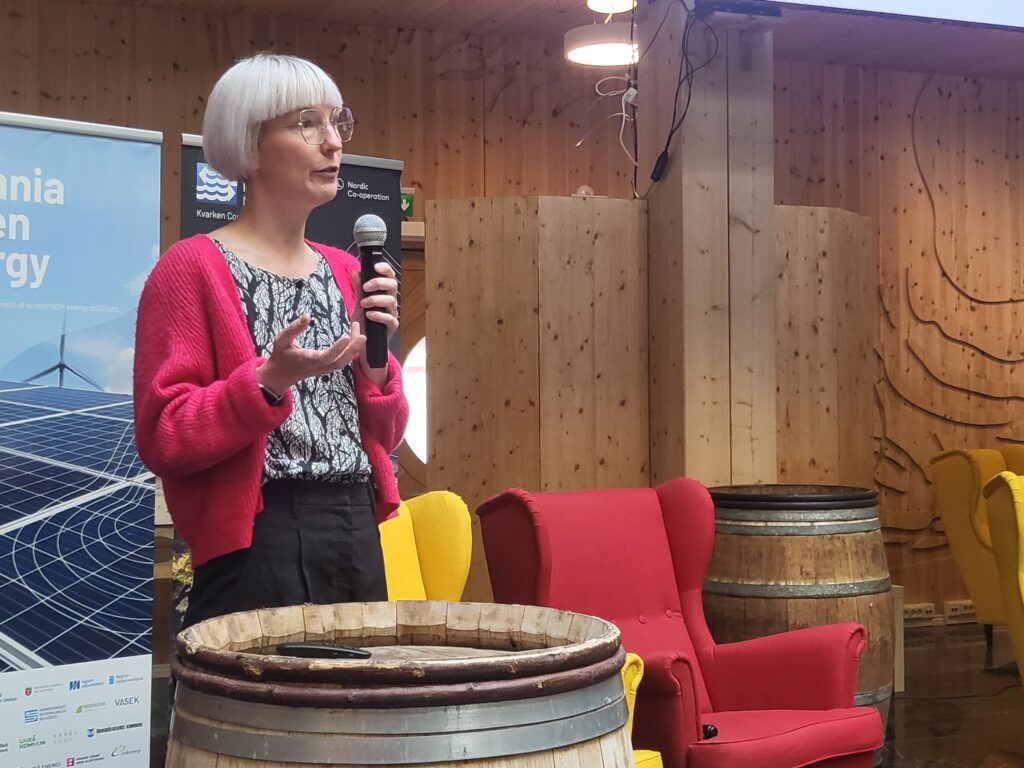
The next speaker, Maria Jalvemo from Svenska kraftnät, confirmed that the green transition involves significant measures and investments. The demand for electricity will increase and by 2050, electricity production in Sweden is also expected to double.
The increased demand for electricity, combined with a completely new energy mix, requires billions to be invested in the Swedish grid – investments that are also planned.
New projects underway
To make cooperation between regions and countries run smoothly, communication and shared visions are needed. Two of the Kvarken Council’s projects starting this autumn touch on this exactly.
New North is a project focused on shaping a common vision for sustainable regional aviation. The FAIR 2 project, on the other hand, is a continuation of the FAIR electric aviation project that ended last year.
“Through this new project, we want to understand the demand for sustainable regional aviation,” says Isak Brändström, FAIR 2 project manager.
